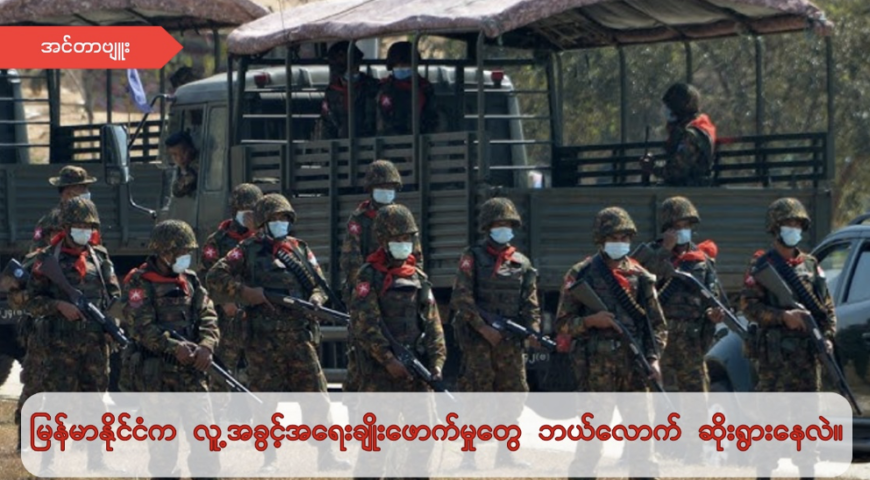An interview with Ko Yaw Lay, founder of Pyinsama Mandai Civil Surveillance Group (PMCSG), which documents human rights violations in Myanmar, about their findings.
Human rights violations in Myanmar have worsened since the military coup. While the military junta forces are at the top of the list of human rights violations, the PMCSG reports that some defense forces and unidentified groups are also committing human rights violations on the ground.
The PMCSG is an organization that documents human rights violations throughout Myanmar, including in Magway Region. Than Lwin Times conducted this interview with PMCSG founder Ko Yaw Lay to learn more about the incidents observed during this documentation process and the status of accountability from the perpetrators.
Q: First, please tell us about the state of human rights violations in Magway Region.
A: The human rights situation in Magway Region is similar to other states and regions. For example, there have been arrests, torture and killings. As mentioned in our report, three groups are involved in these incidents: the military junta, the defense forces and other unidentified groups. We have observed violations that have been reported worldwide. We have also observed incidents that could be classified as war crimes.
Q: What types of human rights violations did you observe most frequently in the second half of 2024?
A: This year, most violations concern arrests and torture. These incidents are the most common. In some cases, people have died due to beatings during arrests. Another problem is the restriction of freedom of movement. Not only the mechanisms of the junta, but also the defense forces impose restrictions, sometimes for reasons other than security. For example, using the main public roads is prohibited because of military exercises. We have observed such situations.
Q: What human rights violations have you observed among the resistance forces, apart from the military?
A: The violations aren’t only committed by the military. The actions of the military are of course more serious. But we have also observed violations by the defense forces and unidentified groups. These often involve issues that are listed in the Universal Declaration of Human Rights, such as the restriction of freedom of movement.
Q: What measures is the Ministry of Defense of the National Unity Government (NUG MOD) taking in relation to the violations committed by the resistance forces? How are they dealing with these problems?
A: We haven’t seen any statements or investigations from the NUG or MOD on these issues. We haven’t seen any statements on inspection or investigation processes. We have even seen cases of abuse of power after arrests and interrogations. This indicates that there is no scrutiny from their side. We can say that there is a lack of transparency.
Q: What challenges do you face when documenting human rights violations related to resistance forces? How do you deal with these challenges?
A: Especially when collecting data, we often have to work covertly. This is because we have to maintain neutrality in our data collection. So we have to be extremely careful about our security and our movements.
One advantage is that we ourselves are part of the armed resistance. So we operate under the umbrella of armed organizations. We use this to manage our security situation. We don’t currently disclose who is carrying out data collection in our region. We work without a profile,” i.e. we work without revealing our identity.
Q: As PMCSG, what would you like to say about the state of human rights violations by the military junta and the armed resistance forces?
A: A revolution is all about changing the era and the system. Even if such incidents occur in armed revolutions, we shouldn’t do everything that others do. Especially for the defense forces, it’s important not to imitate the actions of others. If we behave like those we’re fighting against, we’re no different from the military council we’re trying to overthrow.
It’s especially important to prevent such incidents. We should deal with mistakes and take responsibility for them. I’d like to suggest that they focus on the people and work to minimize mistakes as much as possible. We can’t tell them what to do or not to do; we can only make suggestions.
Q: Is there anything else you’d like to add?
A: Given the current circumstances and the situation on the ground that we’re facing, I’d like to see more discussion, consultation and coordination to ensure the success of the revolution that people trust and rely on. And there should be more supervision. Only then will the revolution that everyone wants succeed. I hope they’ll be extra careful to prevent small mistakes from growing into bigger ones.
Sent by Than Lwin Times.

